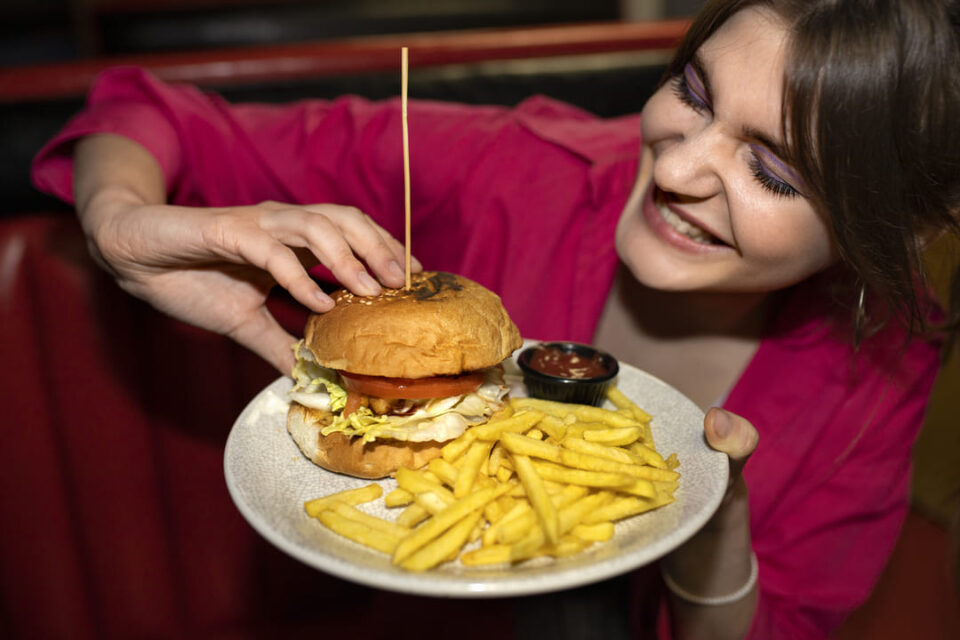Getting your cholesterol checked is an important way to assess your risk for heart disease. However, some people wonder if they should avoid fatty foods right before the test, thinking it might artificially raise their cholesterol levels.
In this blog post, I’ll cover whether eating fatty foods can interfere with cholesterol test results. I’ll also provide some best practices for preparing for the test. My goal is to help you understand what impacts your numbers, and how to get the most accurate cholesterol reading possible.
Can Fatty Foods Skew Your Cholesterol Test Results?
First, let’s go over whether consuming high-fat foods right before your cholesterol test can affect the outcomes. The short answer is – yes, eating fatty foods, especially saturated fats, the night before your test can cause some fluctuations.
Here’s a bit more detail on why.
– After you eat a fatty meal, triglycerides and other fats enter your bloodstream. They are carrying cholesterol with them. Typically, your body would quickly use or store these fats. But blood for your cholesterol test is drawn too soon for this to happen.
– The influx of circulating fats means your total cholesterol and LDL or “bad” cholesterol levels may read higher on the test than is typical for you. This gives an inflated perspective of your long-term blood lipid levels.
So in essence – the high circulating fats from your recent meal make your cholesterol appear temporarily elevated.
How Long Do Effects Last?
Research shows the effects on cholesterol numbers are,
- Most pronounced in the 3-4 hours after eating
- Tend to decline after this peak period
- But can still impact readings up to 9 hours after the meal
So for the most reliable results, avoiding high-fat fare in the last 12-24 hours is best.
Best Practices: Preparing for Your Cholesterol Test
To get the most accurate read possible from your cholesterol screening, here are some tips.
1. Follow pre-test diet instructions
If your doctor provides pre-test dietary guidelines, be sure to read and follow them closely. Often they advise,
– Eating normal amounts on the days leading up to the test
– But avoiding fatty, fried, and processed foods within 24 hours of the blood draw
This minimizes temporary fluctuations from recent meals.
2. Stay well hydrated
Drink plenty of water the day before and the day of your test. Being well-hydrated helps your blood draw go smoothly.
3. Don’t smoke before the test
Research shows cigarette smoking, even occasionally, can lower HDL or “good” cholesterol readings for hours afterward.
4. Avoid strenuous exercise the day before
Vigorous exercise may cause short-term rises in lipid levels. Take a light exercise day instead.
So in summary – following dietary guidelines, staying hydrated, avoiding tobacco, and moderating exercise can all help you achieve accurate cholesterol test results.
Takeaway Message
To wrap things up, yes, consuming high-fat, rich foods – especially within 3-9 hours of your blood draw – can cause inflated cholesterol readings. Saturated fats in particular get absorbed rapidly and carry cholesterol into the blood before being processed and stored.
That’s why medical guidance often suggests avoiding fatty fare, fried items, and processed meats in the 24 hours leading up to your test.
Following best practices for preparing can help minimize these variables. Doing so ensures your cholesterol screening is an accurate snapshot of your typical lipid profile.
I hope these insights on how dietary choices impact cholesterol test results are helpful! Let me know if you have any other questions.


1 comment
[…] Recent studies in India have reported that high cholesterol is present in 25–30% of urban and 15–20% of rural subjects. This prevalence is lower than in high-income countries. In this blog, we’ll analyze the latest research, patient experiences, and my perspective to uncover whether skimping on water can raise your cholesterol. […]